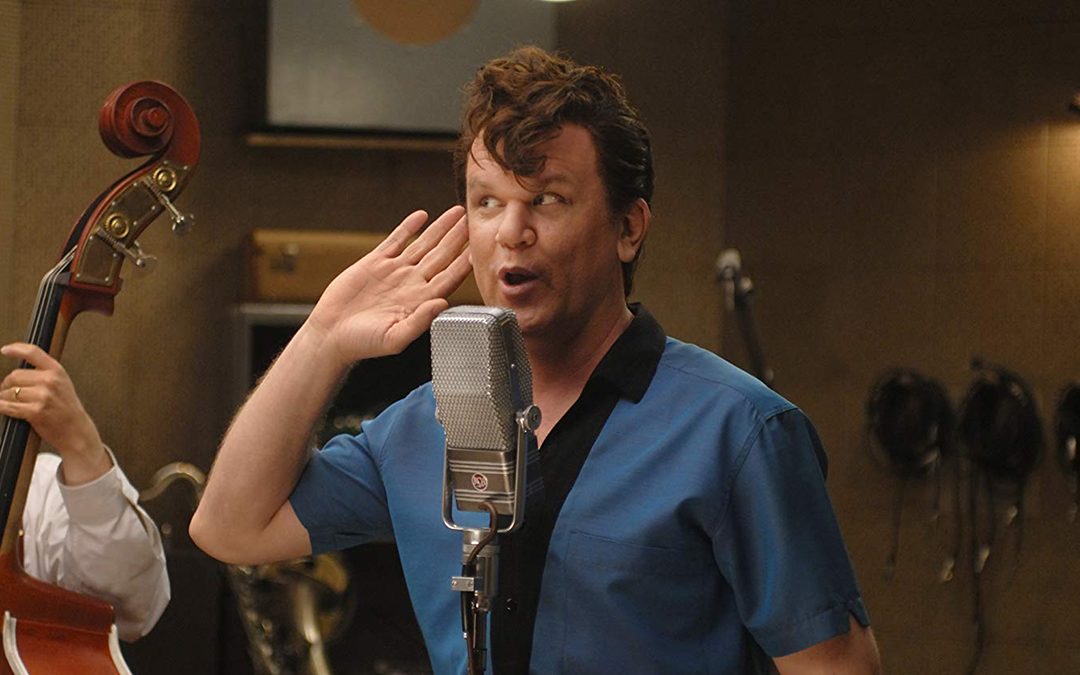As an actor, John C. Reilly is exceptionally difficult to pin down. The Academy Award-nominated actor has worked with filmmakers ranging from Paul Thomas Anderson to Judd Apatow. Currently in awards contention again for his turn as Oliver Hardy in Stan & Ollie, he’s always been brilliant at both comedic and dramatic roles.
Going at least as far back as Will Ferrell and Jack Black’s A Comedian At The Oscars number at the 2007 Academy Awards, Reilly’s formidable range has long been celebrated. How do we know that real actors can do both comedy and drama? John C. Reilly, that’s how. After all, he “chose to be in both Boogie and Talladega Nights!”
In addition to Stan & Ollie currently playing in cinemas, you can also catch him reprising his voice role in Ralph Breaks The Internet, and er… (mumble it) re-teaming with Will Ferrell in Holmes & Watson. There may not be a lot to recommend the latter, but he’s never disengaged from anything he’s in, whether he’s working with Robert Altman or playing the Sasquatch in Tenacious D In The Pick Of Destiny.
So, in recognition of his recent prolific streak, here’s our look back at some of his finest movie work to date, ranging from the marvellous supporting turns that made his name to the rare but no less impressive starring roles…
Franklin, We Need To Talk About Kevin
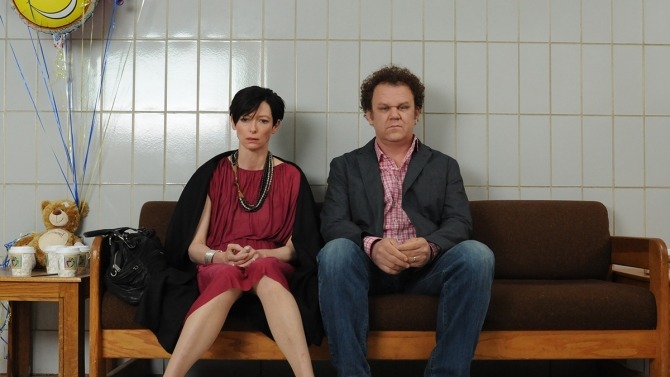
Throughout his career, Reilly has turned playing the oblivious husband into a fine art. In the midst of a psychological horror film like Lynne Ramsey’s adaptation of We Need To Talk About Kevin, that role is even more tragically unhelpful than usual. As Tilda Swinton’s Eva despairs over their son’s behaviour, Reilly’s Franklin is confused and angry at her for it.
Within the time-hopping structure, his inability to see anything wrong with their son is maddening for Eva and for the viewer, but there’s nothing sinister or stubborn about his inability to see the truth. As the dad in a family with some fearsome issues, Reilly’s supporting role provides much-needed grounding.
Rhomann Dey, Guardians Of The Galaxy
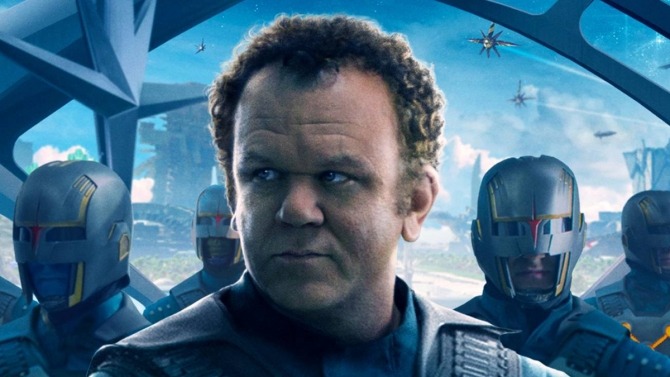
Back on slightly geekier terrain, Reilly has a minor but memorable role in the Marvel Cinematic Universe. Amid all the spectacle of a star-studded space opera, Nova Corps officer Rhomann Dey serves a reminder of what the Guardians are fighting for in a galaxy far, far away. They may protest that they want to save the cosmos because they have to live in it too, but we’re given ample reason for the audience to care, too.
In a film that eschews the usual Earthbound finale, Rhomann simply serves as a character that we like, but inevitably, Reilly gives his Xandarian outer space beat cop a bit more personality too. The final reveal of his wife and kid is a small but crucial part of the film’s feel-good finale. It’s a shame that there’s no room for him in Volume 2, especially given the ill tidings from Xandar at the beginning of last year’s Avengers: Infinity War.
Lisping Man, The Lobster
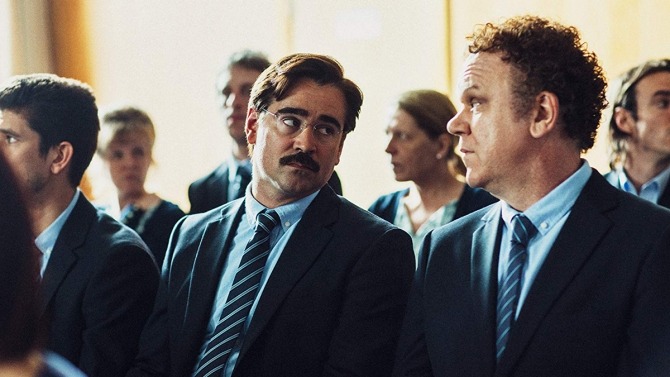
In Yorgos Lanthimos’ surreally un-romantic comedy The Lobster, singletons are dispatched to a hotel where they must find a partner within 45 days or face being transformed into the animal of their choice. All you really need to know about Reilly’s character, known only as Lisping Man, is that he’s chosen to be a parrot, without necessarily thinking through his speech impediment.
Like several other characters he’s played, Lisping Man is like a big kid. It’s easy to root for him, but you sense it’s he’s doomed around the time he gets his hand toasted for breaking one of the hotel’s main rules. Hopeless as he is, he’s still endlessly sympathetic. Who else could be so convincingly won over by Colin Farrell calling him their “sad fat friend”?
Maury Slocum, Life After Beth
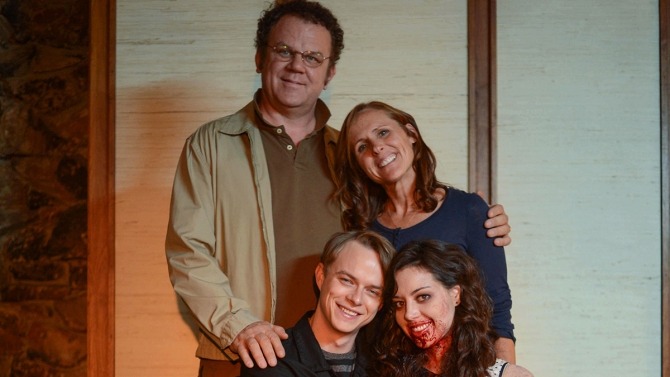
Playing another oblivious dad, Reilly makes a hilarious yet touching double act with Molly Shannon in Jeff Baena’s Life After Beth. We’re all familiar with that one character in a zombie movie who doesn’t tell anybody else they’ve been bitten. The Slocums turn that towards showing unconditional love for their daughter Beth (Aubrey Plaza, on top form) even though she’s recently joined the ranks of the living dead.
Dane DeHaan’s Zach is understandably hurt when his late girlfriend’s parents suddenly shut him out, little realising that they’re keeping their zombie daughter in hiding. They’re pretty cool parents, right up until the undead start running riot. In the grand scheme of things, Reilly’s progression from doting father to overprotective lunatic unfolds quite naturally.
Amos Hart, Chicago
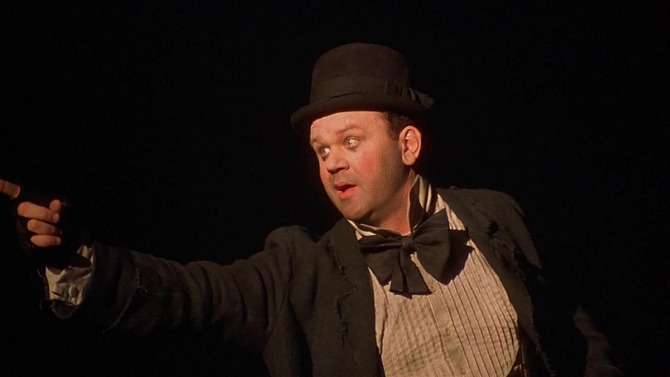
2002 was the year that Reilly truly cornered the market on playing blissfully ignorant husbands, between his various performances in The Good Girl, The Hours and that year’s Best Picture Oscar-winner Chicago. Also bagging Reilly a Best Supporting Actor nod at that year’s Academy Awards, the latter represents some of his best work.
As Roxie Hart’s devoted husband, he embodies a puppy-like quality that makes him just too precious for the world that he inhabits. As well as getting a great solo number, Mr Cellophane, he plays one of his most generous supporting roles. It’s not a showy performance, but it’s clear why it’s one of his most widely praised turns to date.
John Finnegan, Hard Eight
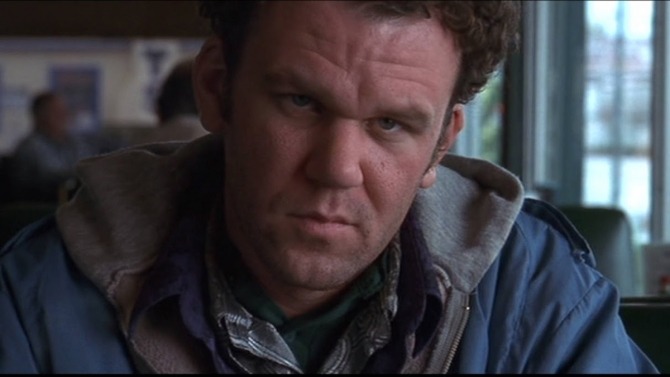
Reilly got his first major role in Paul Thomas Anderson’s debut feature, 1996’s neo-noir drama Hard Eight. Introduced as a down-on-his-luck schlub struggling to pay for his mother’s funeral, John becomes the foil to Phillip Baker Hall’s Sydney, a streetwise hustler who takes him under his wing.
For reasons that become clearer as the film’s various twists and turns reveal themselves, the relationship between Sydney and John is a complex one. On the other hand, John is not an especially complex character, and it seems as if he’s going to unwittingly lead his mentor into serious trouble somewhere down the line. But by the time of their last conversation, you can’t help but appreciate how Reilly truly brings this credulous lunk to life.
Hank Marlow, Kong: Skull Island
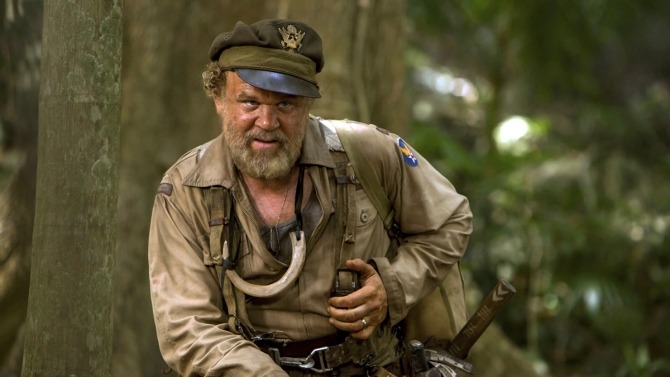
Much like Legendary’s 2014 Godzilla reboot, Kong: Skull Island is full of great actors, including Tom Hiddleston, Brie Larson, John Goodman, and Samuel L Jackson. But the emotional investment of the film is almost entirely held by Reilly’s Hank Marlow, a World War II pilot who has been lost on Skull Island for more than 30 years.
He’s understandably a little strange after his experiences, with a line in gallows humour that goes unappreciated by other members of the expedition that arrives on the island. Wacky and grizzled, he’s not really an asset to them, despite being the genius who came up with the name “Skullcrawlers”. Out of a classically disposable monster movie cast, Reilly is the one who you really want to make it out alive, and the film rewards that investment handsomely.
Reed Rothschild, Boogie Nights
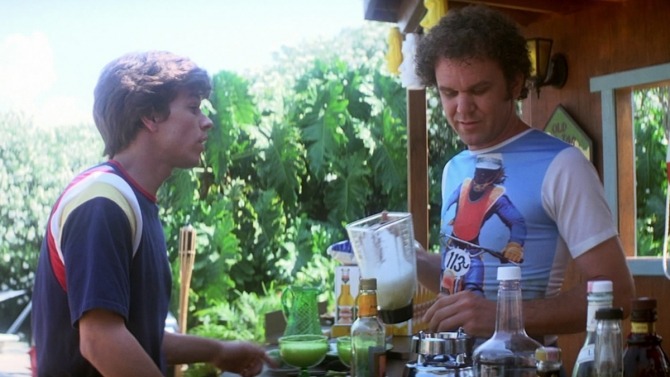
You might have already guessed that all three of Reilly’s turns in PTA movies are going to make this list. Their second collaboration was Boogie Nights, a biopic of Mark Wahlberg’s fictional porn star Dirk Diggler. It’s more of an ensemble movie than Hard Eight, and in the bizarre surrogate family that Anderson establishes, Reilly’s character Reed Rothschild initially serves as Dirk’s screwball big brother.
After bonding over their mutual enjoyment of Star Wars and martial arts and starring in a string of action-themed skin flicks together, it’s Dirk who leads Reed astray. It’s not long before they’re both addicted to drugs and recording an appalling cover of You Got The Touch (years before Marky Mark joined the Transformers franchise.) Wahlberg has said he wishes he never made this film, but Reilly arguably has more to be proud of here. Even when he’s having a go at bad porn acting, you can’t miss what a great actor he is.
Ralph, Wreck-It Ralph and Ralph Breaks The Internet
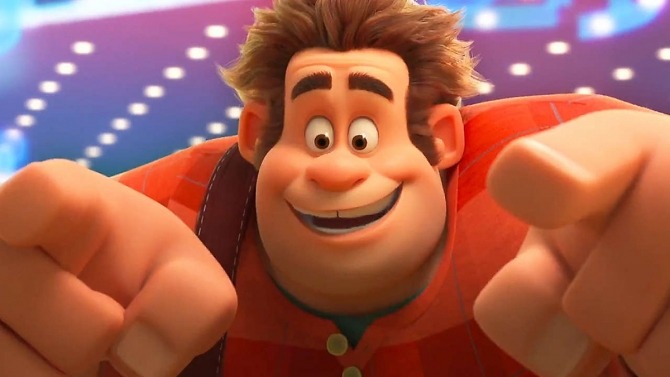
In most Disney films, Wreck-It Ralph wouldn’t be either the hero or the “bad guy”. The big lummox with fragile feelings is usually reserved for comic relief, but in a big, colourful comedy about classic video games, he comes to the fore very nicely. Across the first film and its sequel, Ralph Breaks The Internet, Reilly rounds him out with a rare leading role, albeit one that only takes in his vocals.
Ralph the character is meant to tear stuff down, but both movies get great stuff out of him trying to build himself up instead. Without going into spoilery detail about the sequel, there’s plenty of mileage in exploring how a character designed to be an unfeeling brute feels about himself and the world around him, and Reilly’s voice matches that tone perfectly.
Dale Doback, Step Brothers
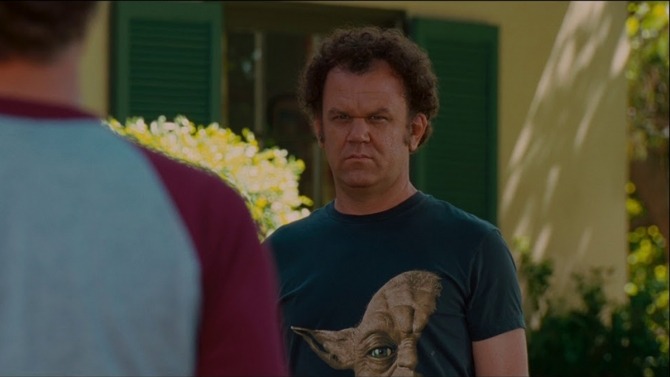
Step Brothers may be the film for which Reilly is best known. After he stole the show as Ferrell’s second banana Cal Naughton Jr in Talladega Nights: The Ballad Of Ricky Bobby, the film is more clearly designed to capitalise on the duo’s unexpected chemistry.
As the large adult sons of Mary Steenburgen and Richard Jenkins, Ferrell and Reilly go through all the stages of sibling bonding in a kind of inverted Bugsy Malone, where all the characters should really be played by children instead of adults.
More than just shouting “boats and hoes!” on time, Reilly’s man-child performance is impressively well observed. The highlight comes when he tearfully likens being beaten up by children to the scene in The Wizard Of Oz where the Scarecrow is attacked by the flying monkeys, perfectly affecting the emotion of a kid who has unexpectedly hurt themselves. It’s unexpected nuances like these which serve to make Step Brothers so spectacular in its stupidity.
Officer Jim Kurring, Magnolia
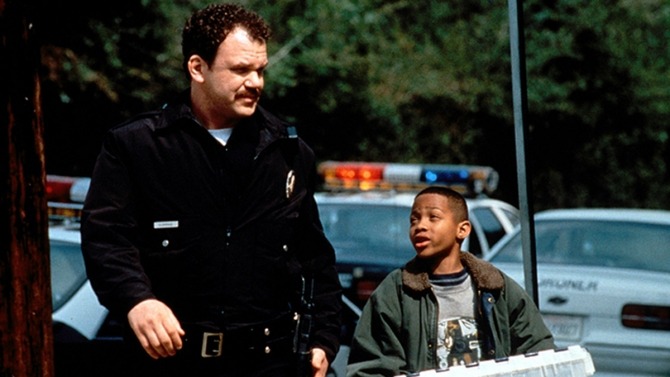
Anderson’s most recent collaboration with Reilly gives him a much larger role. His character, Officer Jim Kurring, is the nearest thing Magnolia has to a romantic lead. Even so, his arc moulds to the unconventional shape of the film’s Short Cuts-inspired structure. The film starts in earnest with him discovering a dead body (which has deceptively little to do with the densely inter-connected plot thereafter) and continues to follow the cop on his beat, responding to domestic disturbances.
By most definitions, Jim is a good man. He’s neither corrupt nor cruel, he abhors strong language, and he always tries to be fair. His major flaw is that he’s generally fairly sheltered in his own perception of the world. Plus, like many of the other characters, he trends towards berating himself for his own failings. Even with all his problems, he’s the straight arrow in the ensemble.
Throughout Anderson’s sprawling emotional thesis, his unlikely romance with cocaine addict Claudia is the real backbone of the story. Addressing a noise complaint at her apartment, Jim’s so besotted with her that he doesn’t realise that she’s on drugs, or that she has some major self-esteem issues of her own. Jim’s not the focus of this intimate epic, but it’s telling that he gets the last word.
Dewey Cox, Walk Hard: The Dewey Cox Story
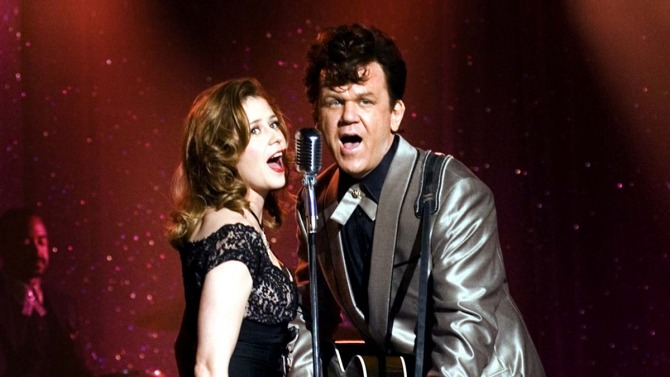
If you’ve never seen it, Walk Hard: The Dewey Cox Story is a genuinely worthy parody of prestige music biopics like Walk The Line or Ray. Released at a point where spoofs largely comprised Friedberg and Seltzer joints like Epic Movie and Meet The Spartans, the Judd Apatow-scripted film felt like a bolt of lightning for those of us who saw it in cinemas at the time.
It’s smartly written and brilliantly soundtracked, but it’s Reilly’s Golden Globe-nominated performance as the title character that swings it as one of the great underrated musical comedies of all time. Playing Dewey from ages 14 to 64, it’s his very own Life & Death Of Colonel Blimp, set against the last half of 20th-century musical history.
Of course, it’s ridiculous that Dewey is “smell-blind”, forever haunted by the unfortunate childhood memory of accidentally chopping his brother in half with a machete. But Reilly doesn’t play it broadly or wink at how silly it is. With impeccable comic timing and pathos, he brings real prestige to an endearingly daft parody.
More than that, he brilliantly belts out every number in Cox’s musical odyssey, from the title track to the surprisingly moving final number, Beautiful Ride. He even toured in character to promote the film’s release. Though it was unloved by audiences upon release, the film has found more appreciation over time, not least for the masterful comedic performance at the centre of it.
While you can chart Reilly’s range across all the other performances we’ve mentioned, Walk Hard may be the only one where you can see it all in one go. He makes you laugh, he makes you cry, he sings, he rips a whole bunch of sinks off bathroom walls, and yes, he walks as damn hard as he pleases.

